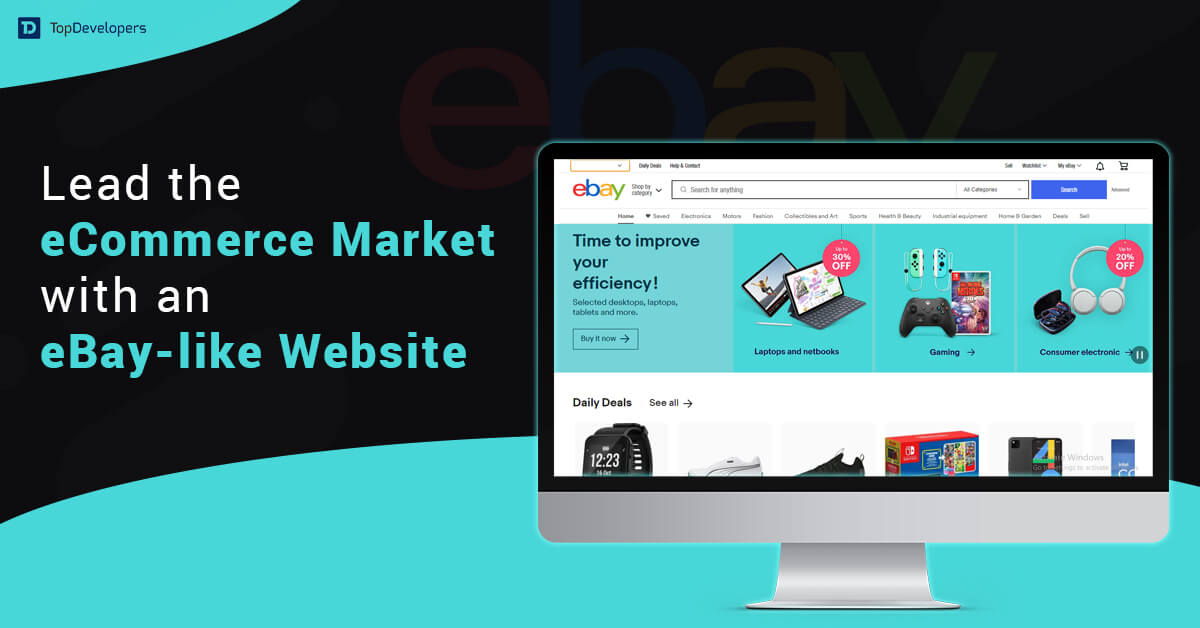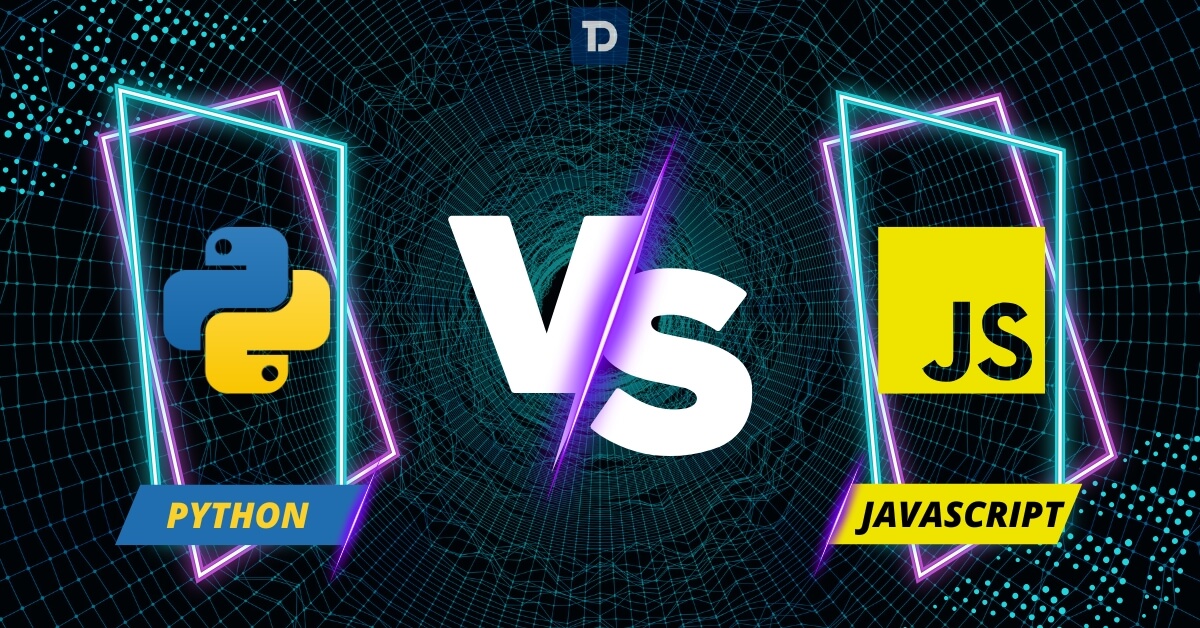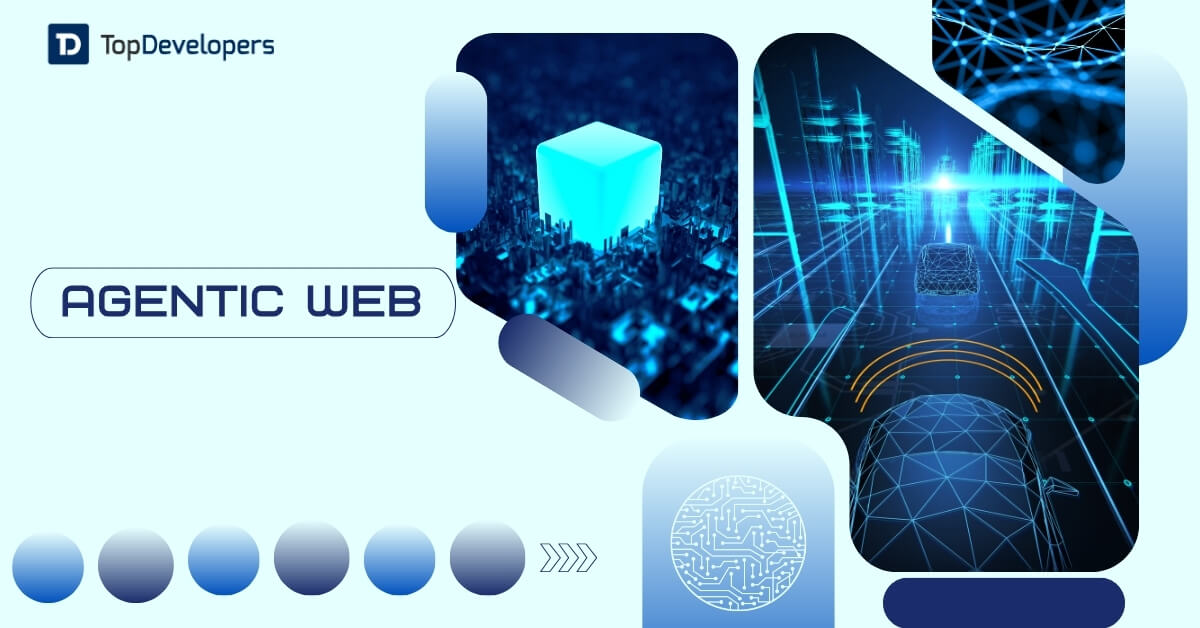
Blockchain in web development is revolutionizing the way businesses build secure, transparent, and efficient digital platforms. Its decentralized nature addresses critical challenges like data security, operational inefficiencies, and trust issues. A recent Deloitte survey revealed that 87% of businesses are likely to invest in blockchain solutions within the next 12 months. Additionally, as per Grand View Research the global blockchain technology market, valued at $17.46 billion in 2023, is expected to grow at a compound annual growth rate of 87.7% through 2030.
In this blog, we’ll explore how blockchain transforms web development, its business benefits, practical applications, and steps to implement it effectively. Whether you’re considering adopting blockchain or seeking to understand its impact, this guide will provide actionable insights.
Table of Contents
- What is Blockchain Technology?
- Types of Blockchains Used in Web Development
- Why Businesses Should Consider Blockchain for Web Development?
- Practical Applications of Blockchain in Web Development
- Challenges in Adopting Blockchain for Web Development
- Steps for Businesses to Implement Blockchain in Web Development
- Assess Business Needs
- Choose the Right Blockchain Platform
- Define Use Cases and Objectives
- Collaborate with Experienced Blockchain Developers
- Develop and Test Smart Contracts
- Integrate Blockchain with Existing Systems
- Educate Stakeholders and Teams
- Monitor, Optimize, and Scale
- Stay Updated on Regulations and Trends
- Case Studies of Successful Blockchain Integration in Web Development
- Future Trends in Blockchain and Web Development
- Closing Thoughts: The Future of Blockchain in Web Development
What is Blockchain Technology?
Blockchain technology is a decentralized digital ledger that securely records transactions across a distributed network of computers. Unlike traditional systems reliant on central authorities, blockchain operates through a peer-to-peer network, making it more secure, transparent, and tamper-proof.
Key Features of Blockchain in Web Development:
- Decentralization: Data is distributed across a network, reducing reliance on centralized systems and eliminating single points of failure.
- Immutability: Once data is recorded on the blockchain, it cannot be altered or deleted, ensuring transparency and trust.
- Enhanced Security: Blockchain uses advanced cryptographic methods and consensus mechanisms to secure transactions and data from unauthorized access or tampering.
These features make blockchain a reliable solution for businesses aiming to build secure and efficient web applications.
Types of Blockchains Used in Web Development
There are several types of blockchains, each designed to meet specific business needs. Understanding their differences can help businesses choose the right solution for their web development projects:
Public Blockchain
Open and accessible to everyone, public blockchains are decentralized and transparent. They are commonly used for applications like cryptocurrencies (e.g., Bitcoin, Ethereum) and decentralized applications (DApps).
Private Blockchain
Controlled by a single organization, private blockchains offer restricted access, making them suitable for businesses requiring privacy and control over their data.
Consortium Blockchain
Operated by a group of organizations, consortium blockchains provide partial decentralization while allowing collaboration between trusted parties. These are often used in industries like banking and supply chain management.
Hybrid Blockchain
Combining the features of public and private blockchains, hybrid solutions offer flexibility, allowing businesses to maintain control while benefiting from transparency and decentralization.
Choosing the right blockchain type is crucial for leveraging its full potential in web development.
Why Businesses Should Consider Blockchain for Web Development?
Blockchain offers transformative benefits that address many of the challenges businesses face in traditional web development. Its ability to enhance security, streamline processes, and foster trust makes it a game-changing technology for forward-thinking organizations. Here’s why it’s worth considering:
Enhanced Security
Blockchain’s decentralized and cryptographic structure ensures data is protected against breaches and unauthorized access. This makes it an ideal solution for businesses handling sensitive information like customer data or financial records. With blockchain, the risk of cyberattacks and data manipulation is significantly reduced.
Decentralized Data Management
By distributing data across a network, blockchain eliminates single points of failure and reduces the risk of downtime. This ensures reliability and continuity in business operations, making it particularly useful for industries requiring 24/7 availability, such as e-commerce or finance.
Transparency and Immutability
All transactions and changes are recorded permanently, creating an immutable ledger. This transparency fosters trust between businesses and their customers, suppliers, and partners. It also simplifies audits and compliance by providing a clear and verifiable history of all activities.
Cost Efficiency
Blockchain automates processes like contract execution through smart contracts, reducing administrative overhead and streamlining operations. Businesses can save time and money by minimizing manual interventions and eliminating intermediaries.
Scalability for Growth
Blockchain solutions can scale to meet the growing demands of businesses, whether it’s handling increasing transactions or integrating with other emerging technologies. Its flexibility allows businesses to adapt to evolving market conditions and customer needs.
Competitive Advantage
Adopting blockchain demonstrates innovation, helping businesses stand out in a competitive market and attract tech-savvy customers. It signals a commitment to cutting-edge technology and positions the business as a forward-thinking leader in its industry.
By integrating blockchain into web development, businesses and web development companies can build robust, future-ready platforms that offer security, efficiency, and trust. Blockchain not only solves current challenges but also paves the way for innovations in the digital landscape.
Practical Applications of Blockchain in Web Development
Blockchain is more than a buzzword; it is a practical solution for businesses aiming to innovate and optimize their digital operations. From enhancing transparency to automating processes, the top applications of blockchain for business span a wide range of industries and use cases. Here are some of its key applications in web development:
Decentralized E-commerce Platforms
Blockchain enables secure, transparent transactions in e-commerce. It allows businesses to process payments without intermediaries, reducing transaction fees and enhancing customer trust. Additionally, blockchain-based platforms can protect sensitive customer data and prevent fraud.
Supply Chain Management Solutions
Blockchain provides end-to-end visibility for supply chains, allowing businesses to track goods in real-time. Each stage of the process is recorded on an immutable ledger, ensuring transparency and reducing disputes over authenticity or delivery.
Secure Payment Systems
With blockchain, businesses can offer faster, cheaper, and more secure payment options. Cryptocurrencies and blockchain-enabled payment gateways minimize the risk of fraud and chargebacks while providing global payment capabilities.
Identity Verification Systems
Blockchain simplifies and secures identity verification for users. By storing identity credentials on a decentralized ledger, businesses can streamline authentication processes while ensuring data privacy and security.
Content Ownership and Protection
Blockchain is ideal for businesses dealing with digital assets, such as media or intellectual property. It allows creators and companies to establish ownership, track usage, and ensure rightful compensation through smart contracts.
Enterprise-Level Data Sharing
For businesses collaborating on large-scale projects, blockchain ensures secure and transparent data sharing. Industries like healthcare, finance, and logistics can use blockchain to manage sensitive information across multiple stakeholders without compromising security.
Loyalty Programs and Rewards
Blockchain enables businesses to create transparent and flexible loyalty programs. Customers can earn and redeem rewards securely, with all transactions recorded immutably, eliminating fraud and improving customer satisfaction.
By leveraging these applications, businesses can enhance their web platforms with innovative solutions that build trust, improve efficiency, and deliver exceptional user experiences.
Challenges in Adopting Blockchain for Web Development
While blockchain offers immense potential, its adoption in web development comes with certain challenges that businesses must consider and address. Understanding these hurdles can help organizations make informed decisions:
Scalability Issues
Blockchain networks, especially public ones, often struggle with handling a high volume of transactions. This limitation can lead to slower processing speeds and increased costs, which may impact the user experience in web applications.
Integration Complexity
Incorporating blockchain into existing systems can be a complex process. Businesses may need to overhaul legacy systems, which requires significant time, resources, and expertise. Ensuring compatibility with current web technologies can also be challenging.
Regulatory Compliance
The regulatory environment around blockchain is still evolving. Businesses must navigate legal uncertainties and ensure compliance with regional laws, particularly regarding data privacy and cryptocurrency use.
High Initial Investment
The cost of implementing blockchain solutions, including infrastructure setup and hiring skilled developers, can be high. Small and medium-sized businesses may find these upfront costs a barrier, even if the long-term benefits are promising.
Skill Gaps and Talent Shortage
Blockchain development requires specialized skills that are still relatively niche. Finding experienced developers and training existing teams can be a challenge for businesses aiming to adopt this technology.
Energy Consumption Concerns
Certain blockchain networks, particularly those using proof-of-work consensus mechanisms, consume significant amounts of energy. This raises concerns about sustainability, which businesses must address, especially in regions prioritizing green initiatives.
By acknowledging these challenges, businesses can better prepare for blockchain adoption in web development. Strategic planning, proper resources, and collaboration with experts can help overcome these obstacles and maximize blockchain’s potential.
Steps for Businesses to Implement Blockchain in Web Development
Implementing blockchain in web development requires a well-thought-out strategy to ensure successful integration and deliver measurable results. Below are the expanded steps for businesses to adopt blockchain effectively:
Assess Business Needs
Identify specific pain points where blockchain can provide a solution. Evaluate whether your business requires enhanced security, transparency, or process automation. For instance, if managing supply chain transparency is a challenge, blockchain can track and verify each stage of the process. Conduct a cost-benefit analysis to ensure blockchain adoption aligns with your long-term goals.
Choose the Right Blockchain Platform
Select the best blockchain platform from the popular ones that is tailored to your business requirements:
- Ethereum: Known for smart contracts and decentralized applications, ideal for businesses focusing on automation and transparency.
- Hyperledger: A private and permissioned blockchain, perfect for enterprises requiring data privacy.
- Polkadot: Offers scalability and interoperability for businesses needing to connect multiple blockchains.
- Solana or Binance Smart Chain: Suitable for high-speed and low-cost applications like payment systems.
Compare platform features, scalability, community support, and development resources to make an informed decision.
Define Use Cases and Objectives
Map out the specific ways blockchain will add value to your operations. Examples include:
- Enhancing e-commerce security with blockchain payment gateways.
- Automating contract execution through smart contracts in real estate or supply chain.
- Creating decentralized identity verification systems to reduce fraud.
Break down each use case into actionable objectives with measurable KPIs to track success.
Collaborate with Experienced Blockchain Developers
Partner with a blockchain development company or hire skilled developers who specialize in blockchain technology. Look for developers experienced in your chosen platform, as well as knowledge of smart contracts, consensus algorithms, and API integration. Having a dedicated blockchain team ensures you can address challenges during implementation.
Develop and Test Smart Contracts
Smart contracts are a cornerstone of blockchain solutions. Work closely with your development team to create contracts that automate tasks, such as triggering payments when conditions are met. Test these contracts rigorously to ensure accuracy, reliability, and security. Mistakes in smart contracts can be costly since blockchain records are immutable.
Integrate Blockchain with Existing Systems
Seamless integration with your existing IT infrastructure is essential for efficiency. Collaborate with IT specialists to connect blockchain technology with current databases, CRMs, ERPs, and APIs. This ensures the blockchain solution complements your existing workflows rather than disrupting them.
Educate Stakeholders and Teams
Blockchain is a relatively new technology, and its success depends on buy-in from your team and stakeholders. Conduct training sessions to educate employees about how blockchain will impact processes and their roles. Transparency ensures smoother adoption and reduces resistance to change.
Monitor, Optimize, and Scale
Once the blockchain system is live, monitor its performance regularly to identify inefficiencies or security vulnerabilities. Collect user feedback and track KPIs to measure the impact of the technology. As your business grows, explore opportunities to scale your blockchain implementation, such as adding new use cases or integrating with emerging technologies like IoT and AI.
Stay Updated on Regulations and Trends
Blockchain regulations and technologies are evolving rapidly. Stay informed about compliance requirements, especially in industries like finance or healthcare, where data privacy and governance are critical. Additionally, keep track of emerging trends like Web3, green blockchain solutions, and advanced consensus mechanisms to ensure your system remains future-proof.
By following these steps, businesses can not only implement blockchain successfully but also maximize its potential to enhance operational efficiency, improve customer trust, and drive innovation.
Case Studies of Successful Blockchain Integration in Web Development
Real-world examples demonstrate how blockchain can transform web development and solve practical business challenges. Here are some notable case studies:
Walmart: Enhancing Supply Chain Transparency
Walmart uses a blockchain-based system to track the origin and journey of food products in its supply chain. By integrating blockchain into its web platform, the company can trace food items back to their source in seconds, ensuring safety and transparency. This initiative has reduced inefficiencies, minimized food waste, and boosted consumer trust.
OpenSea: Securing Digital Asset Ownership
OpenSea, the leading NFT marketplace, leverages blockchain to provide proof of ownership and authenticity for digital assets. Its web platform integrates blockchain technology to allow creators and buyers to securely trade digital art and collectibles without the risk of fraud. The decentralized system ensures transparency and immutability in transactions.
IBM Food Trust: Revolutionizing the Food Industry
IBM Food Trust uses blockchain to enable businesses across the food supply chain to share data securely and transparently. Through blockchain-powered web portals, retailers, distributors, and producers can access real-time information, ensuring food safety and compliance with regulations.
Civic: Decentralized Identity Verification
Civic provides a blockchain-based identity verification solution, allowing users to manage and protect their personal data. By integrating blockchain into its web platform, Civic offers businesses a secure and reliable way to verify identities without exposing sensitive information, reducing fraud and ensuring privacy.
LVMH: Tracking Luxury Goods
LVMH, the parent company of luxury brands like Louis Vuitton, uses blockchain to verify the authenticity of its products. Its blockchain-based web system tracks the lifecycle of luxury items, from production to purchase. This helps combat counterfeit products and reinforces customer confidence in the brand.
Binance: Decentralized Payment Systems
Binance integrates blockchain into its web platform to offer secure, fast, and low-cost cryptocurrency payment solutions. Businesses and individuals can process transactions globally without the need for traditional banking systems, making it a leader in blockchain-based financial services.
These case studies illustrate the versatility and potential of blockchain in web development. Businesses across various industries can draw inspiration from these examples to design innovative solutions that address their unique challenges.
Future Trends in Blockchain and Web Development
As blockchain technology evolves, it continues to shape the future of web development. Here are some emerging trends that businesses should watch:
Web3 and Decentralized Applications (DApps)
Web3 represents the next phase of the internet, emphasizing decentralization, user control, and data privacy. Businesses are increasingly exploring DApps, which run on blockchain networks, offering transparent and secure platforms for various applications, from finance to social media.
Integration of Blockchain with Emerging Technologies
Blockchain is being combined with other cutting-edge technologies to create innovative solutions:
- AI and Blockchain: AI-powered algorithms analyze blockchain data for insights, fraud detection, and predictive analytics.
- IoT and Blockchain: Securely connecting IoT devices via blockchain ensures data integrity and prevents cyberattacks.
Growth of Decentralized Finance (DeFi)
DeFi is revolutionizing traditional financial systems by offering decentralized alternatives for lending, borrowing, and trading. Web platforms integrating DeFi services allow businesses to access transparent and global financial solutions without intermediaries.
Green Blockchain Solutions
As concerns about blockchain’s energy consumption grow, businesses are adopting eco-friendly alternatives like proof-of-stake (PoS) consensus mechanisms. These energy-efficient models make blockchain adoption more sustainable and align with global environmental goals.
Blockchain for Digital Identity
The use of blockchain for secure digital identity verification is expected to grow. Businesses can use blockchain-based systems to authenticate users without storing sensitive data, reducing risks of breaches and fraud.
Tokenization of Assets
Tokenization involves converting physical or digital assets into blockchain-based tokens. Businesses in industries like real estate, art, and gaming are using tokenization to enable fractional ownership and unlock liquidity.
Increased Focus on Interoperability
With multiple blockchain networks in use, interoperability has become a priority. Technologies like Polkadot and Cosmos are leading efforts to connect disparate blockchains, enabling seamless data sharing and collaboration.
Adoption of Hybrid Blockchain Models
Hybrid blockchains, which combine public and private features, are gaining traction. These solutions provide the flexibility and control businesses need while offering the transparency and scalability of public networks.
By staying ahead of these trends, businesses can leverage blockchain to build innovative, future-ready web solutions that address evolving market demands.
Closing Thoughts: The Future of Blockchain in Web Development
Blockchain technology is reshaping the future of web development, offering unparalleled advantages such as enhanced security, transparency, and efficiency. For businesses, integrating blockchain into web solutions is more than a technological upgrade—it’s a strategic move to stay competitive and innovative in an evolving digital landscape.
From decentralized e-commerce platforms to secure payment systems and supply chain solutions, blockchain applications have proven their value across industries. While challenges such as scalability, cost, and regulatory compliance exist, careful planning and collaboration with top blockchain development companies can help overcome these hurdles effectively.
As blockchain trends like Web3, decentralized finance (DeFi), and tokenization gain momentum, businesses have an opportunity to leverage this transformative technology to build secure, future-ready platforms that meet the demands of a digital-first world.
Rebecca Harrison combines her love for emerging technologies with her ability to explain them in clear, concise terms. With expertise in blockchain, IoT, cloud computing, big data, and cryptocurrency, Rebecca’s articles are essential reads for tech-savvy audiences. She has worked closely with tech startups and established companies to explore the potential of these transformative technologies.


